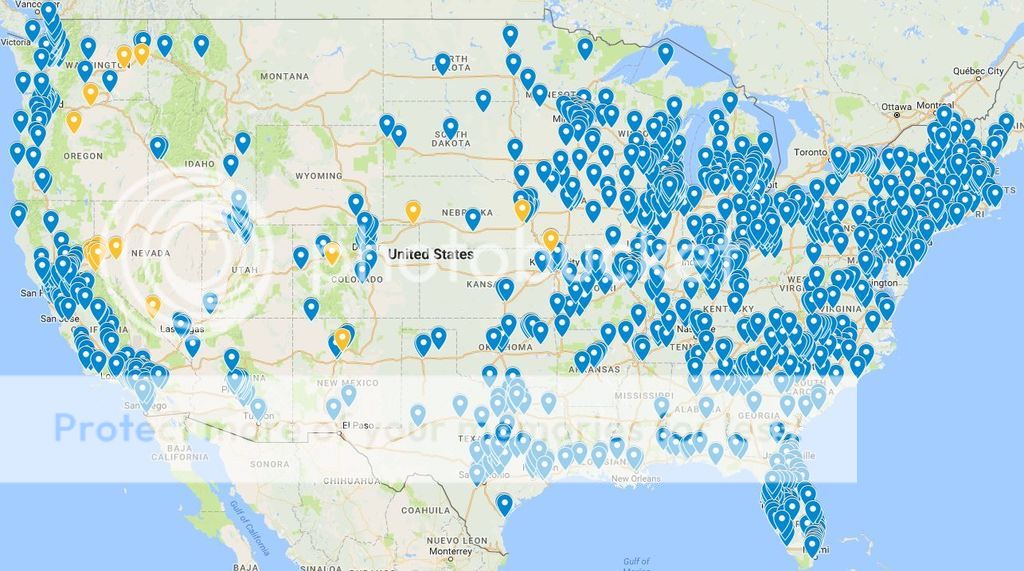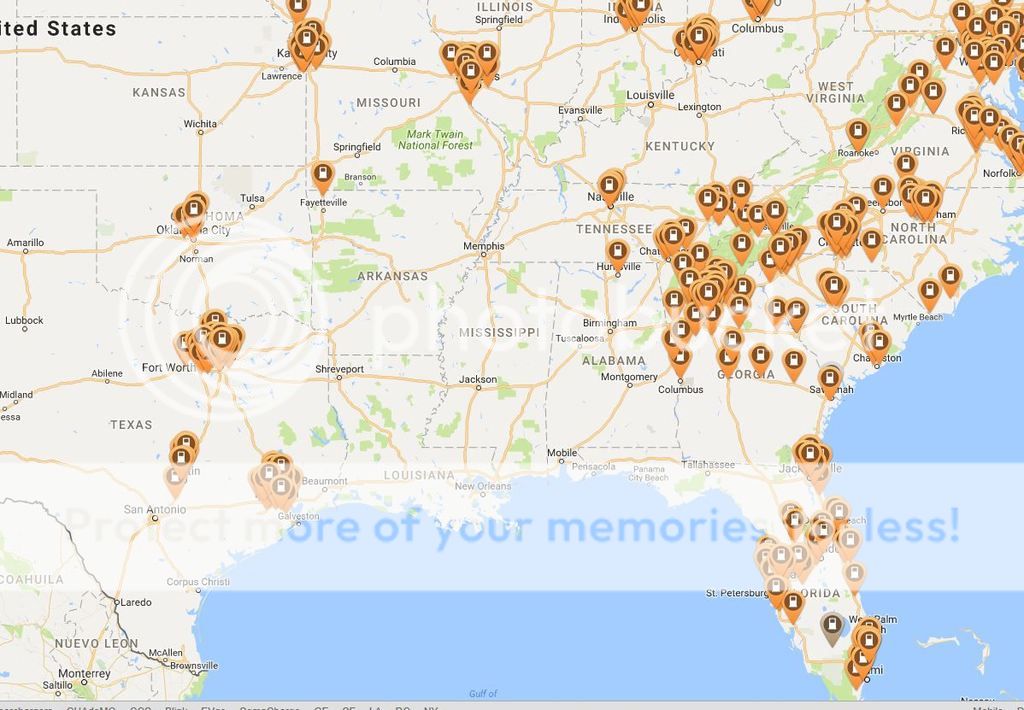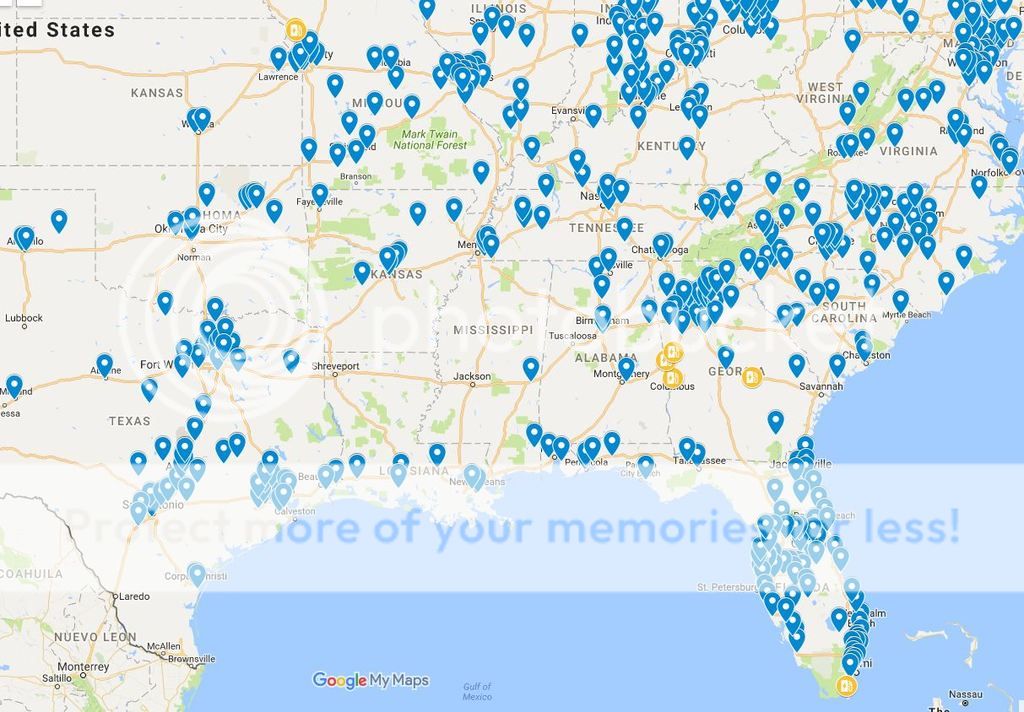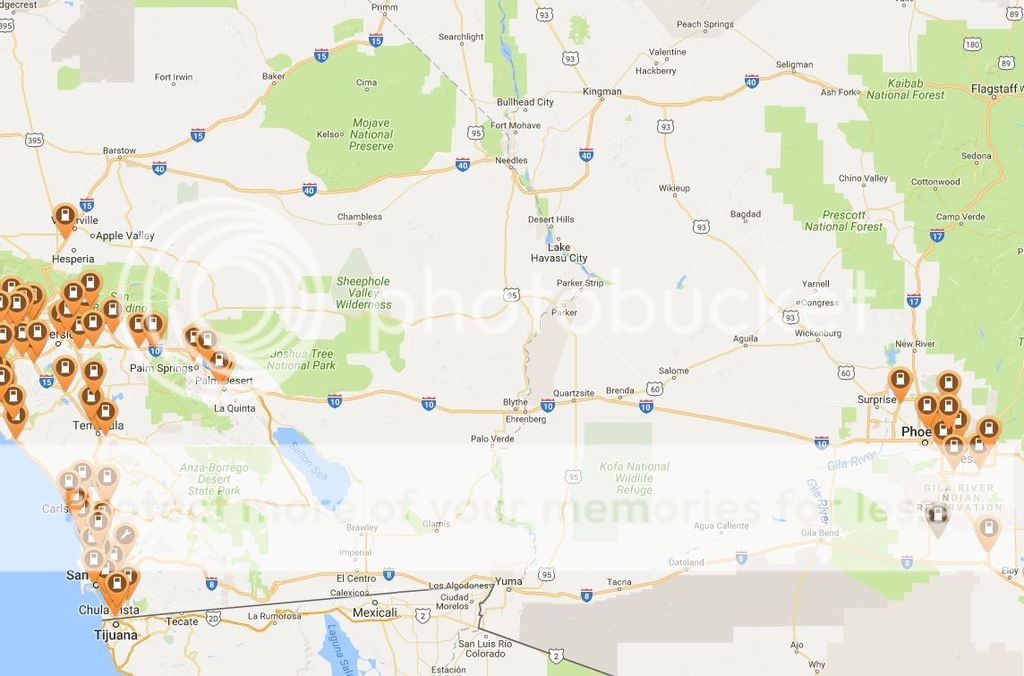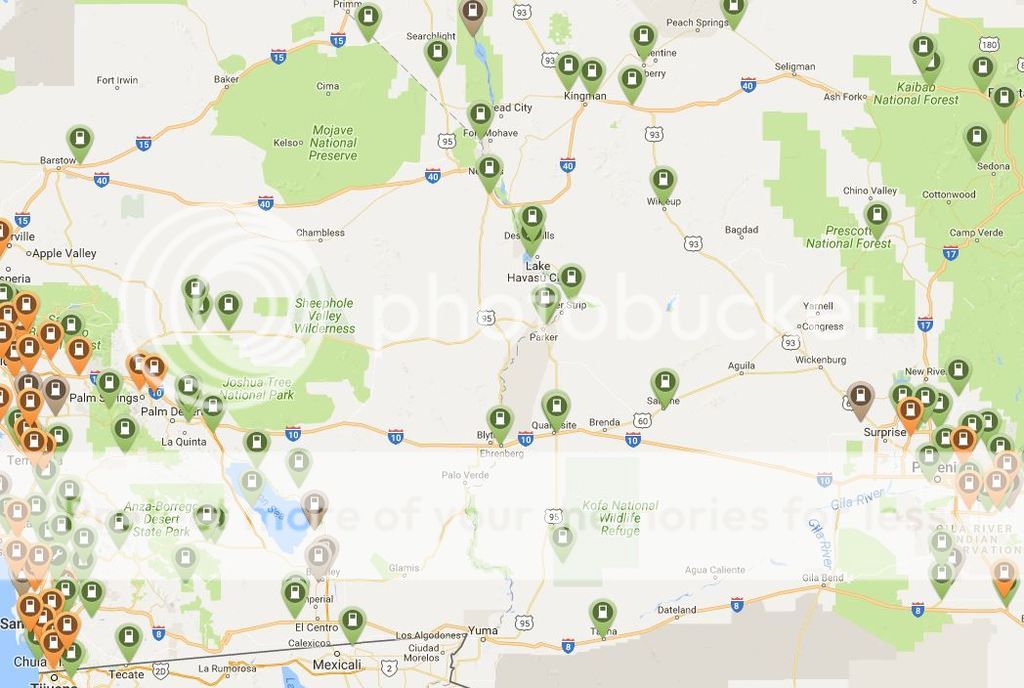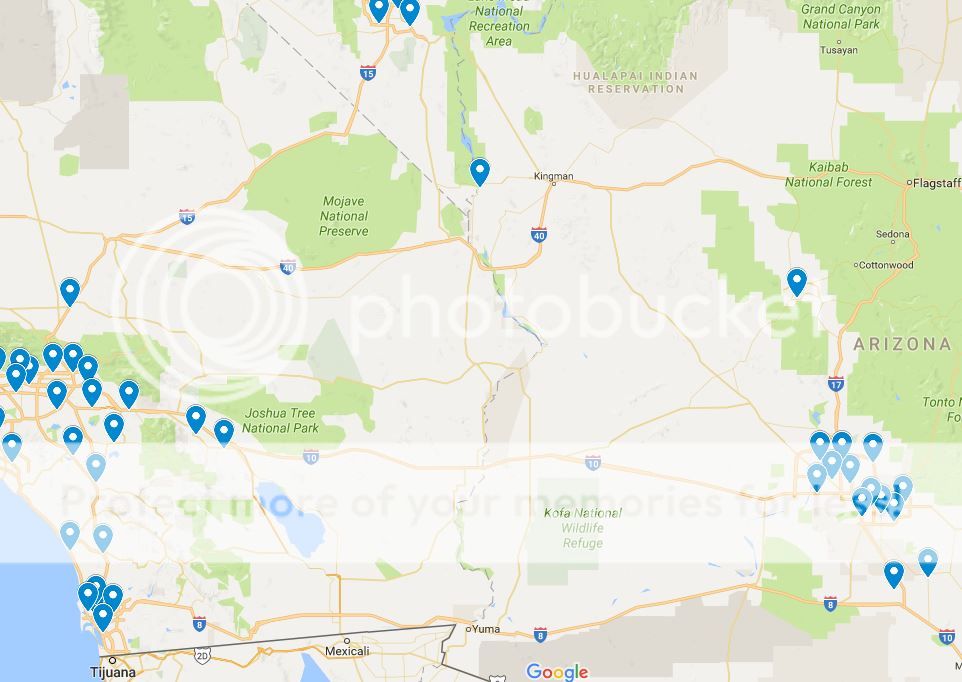PlugShare.com wouldn't let me list Bolt EV dealership with CCS charger locations so I decided to create my own Bolt EV dealer map. The map below was created using Google Maps with Bolt EV Sales and Service dealership locations extracted from Chevrolet.com. There are 1,165 Bolt EV dealerships identified on this map and they ALL should have 24 kW CCS chargers fully function within a few months.
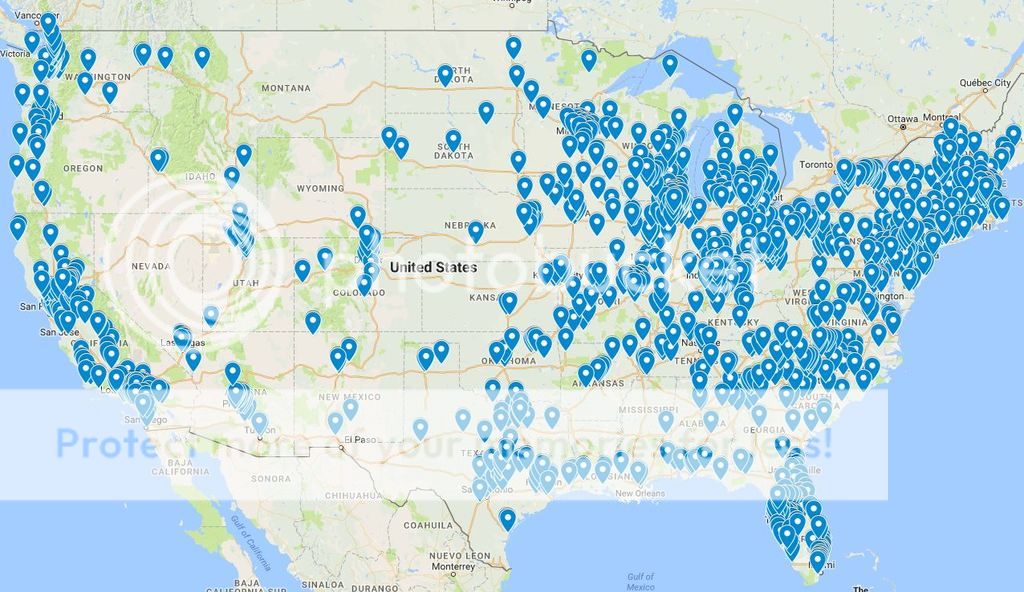
If you compare the Bot EV dealership map with the PlugShare CCS map on you will notice that the Bolt EV dealerships, with their CCS chargers, fill a lot of the commercial CCS station gaps. With CCS chargers at Bolt EV dealerships you will now be able to drive from Chicago to Denver and from Texas to Florida only using CCS chargers. And the trip between California and Texas can be negotiated with a only few overnight charges and only charging by CCS during the day.
Since this is a Google Maps database I can share it. If you want me to share this map with you just send me a private message and I will send you the file. Enjoy

If you compare the Bot EV dealership map with the PlugShare CCS map on you will notice that the Bolt EV dealerships, with their CCS chargers, fill a lot of the commercial CCS station gaps. With CCS chargers at Bolt EV dealerships you will now be able to drive from Chicago to Denver and from Texas to Florida only using CCS chargers. And the trip between California and Texas can be negotiated with a only few overnight charges and only charging by CCS during the day.
Since this is a Google Maps database I can share it. If you want me to share this map with you just send me a private message and I will send you the file. Enjoy

